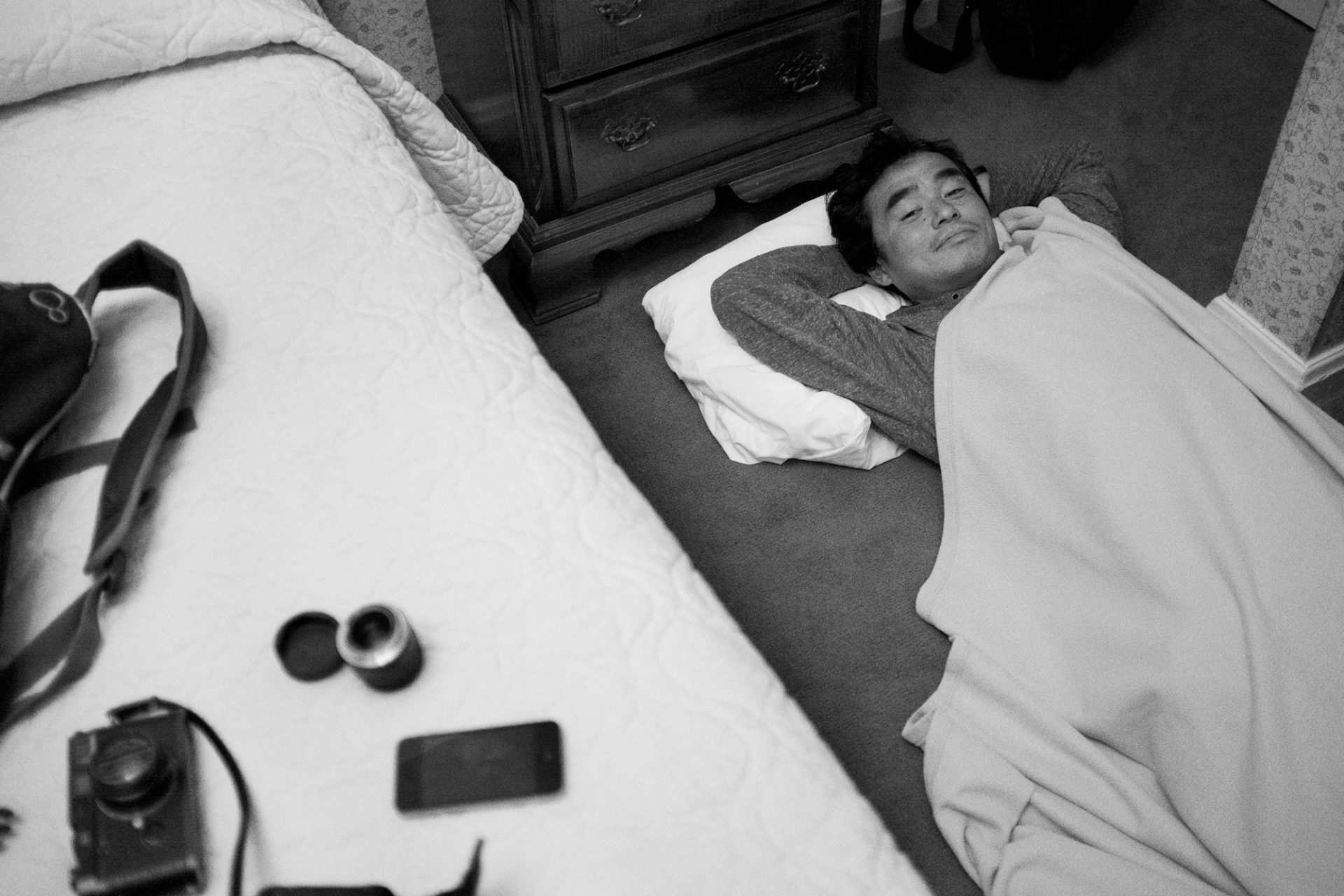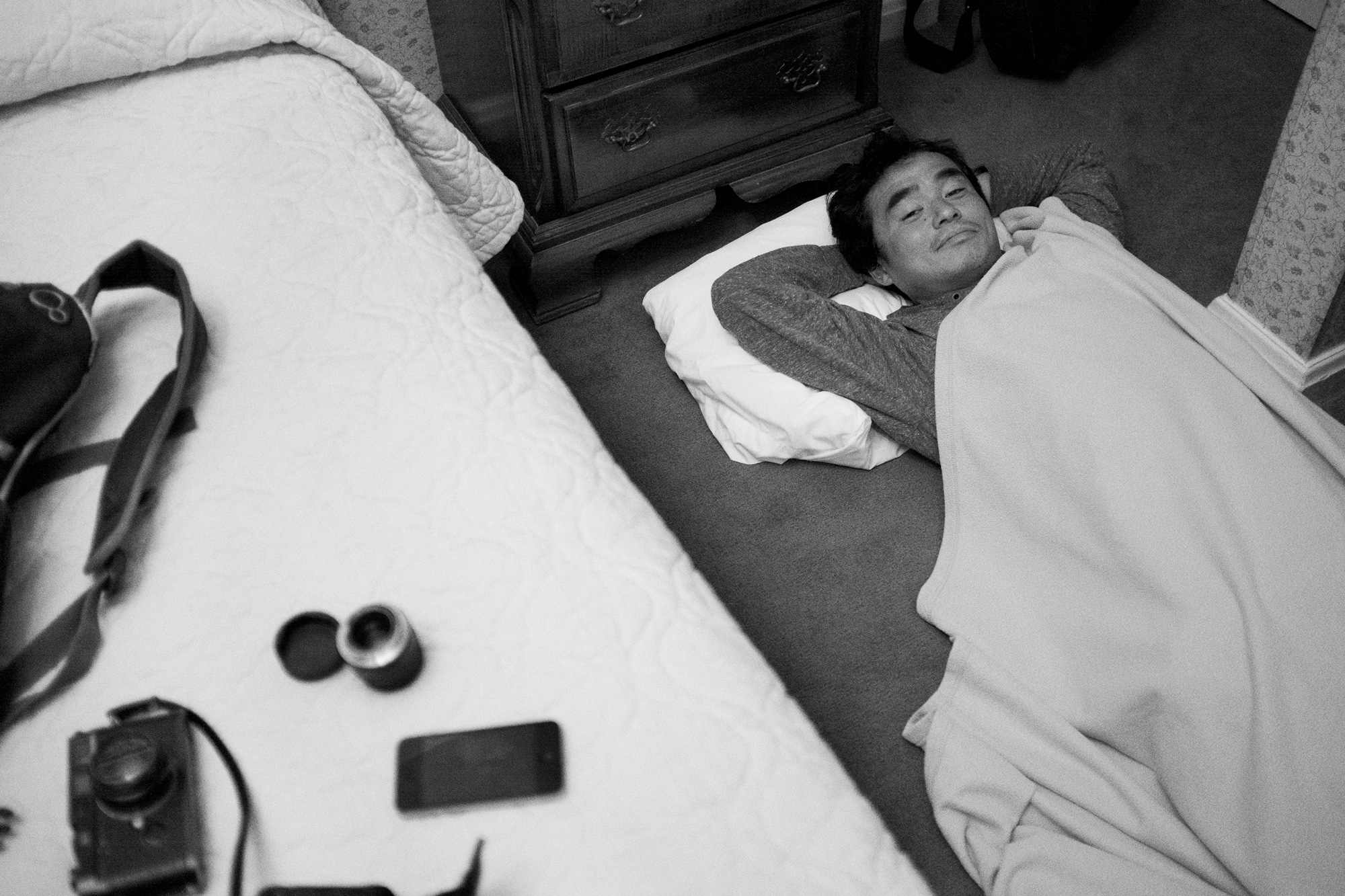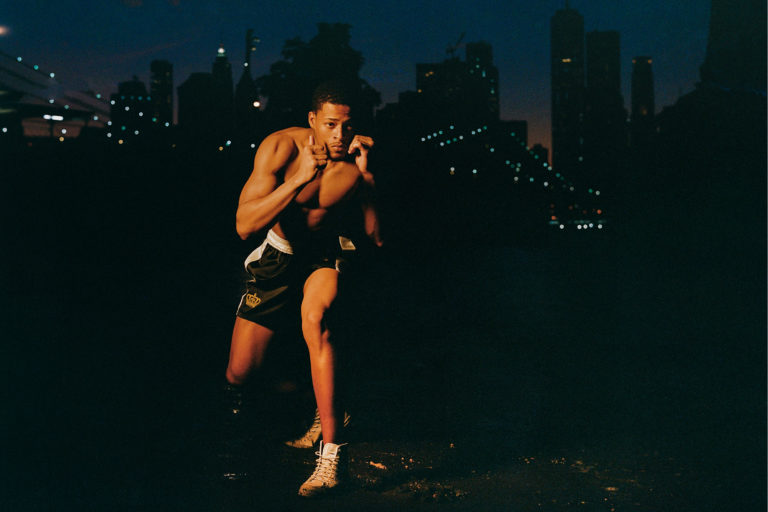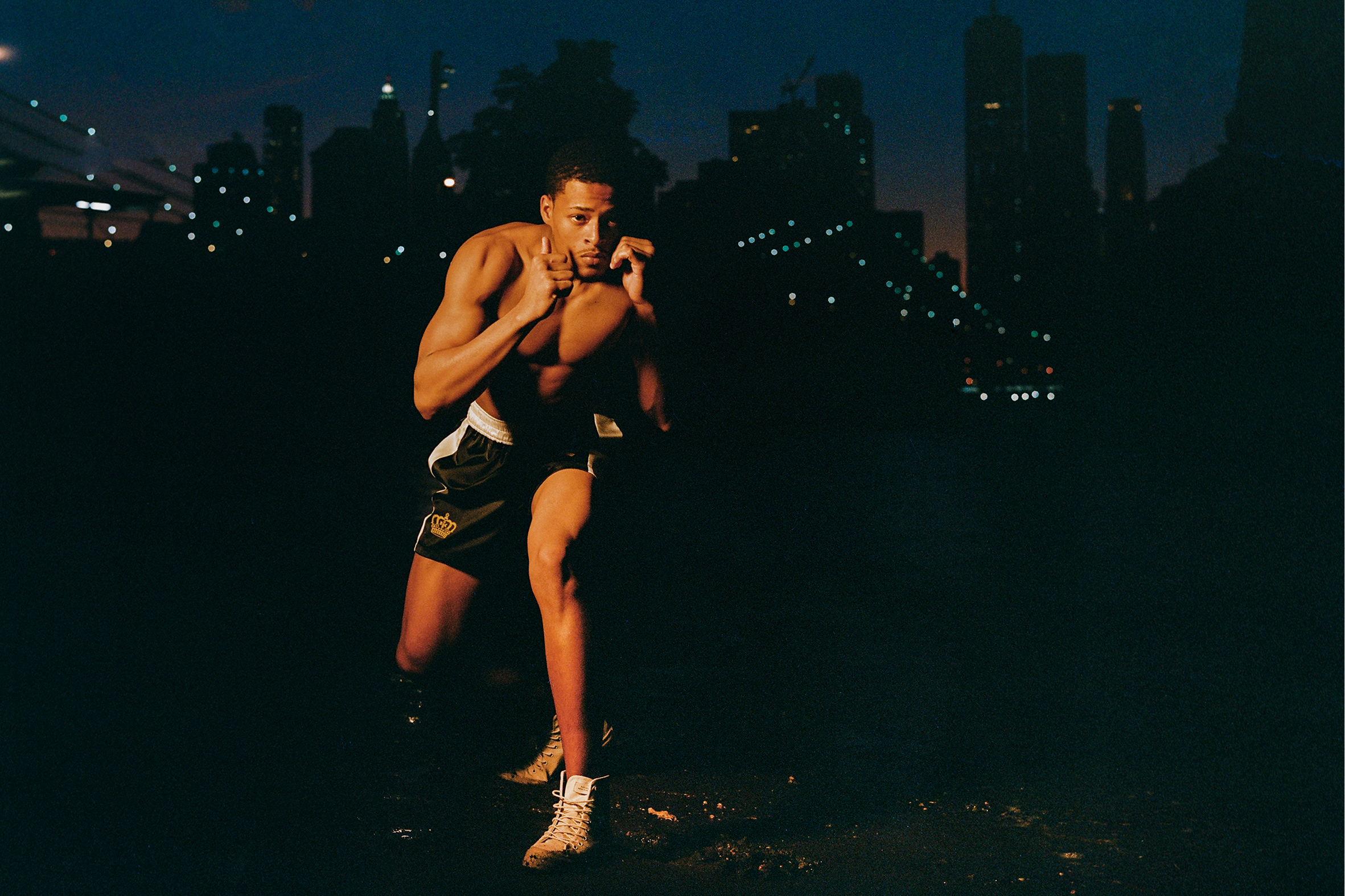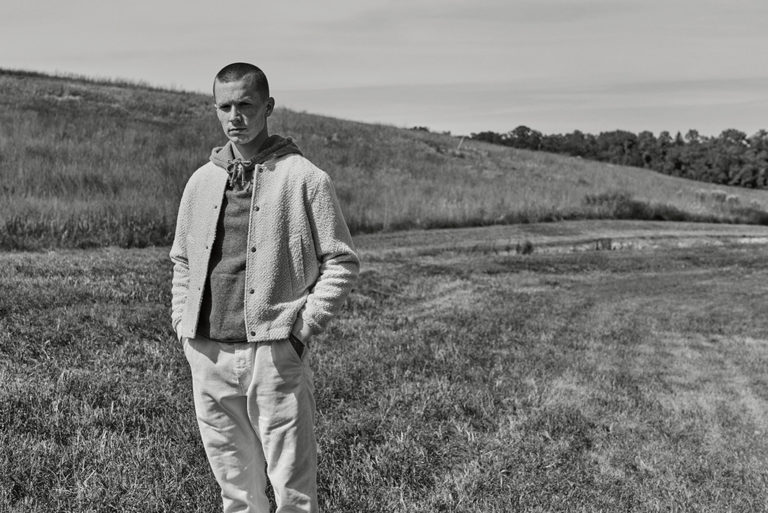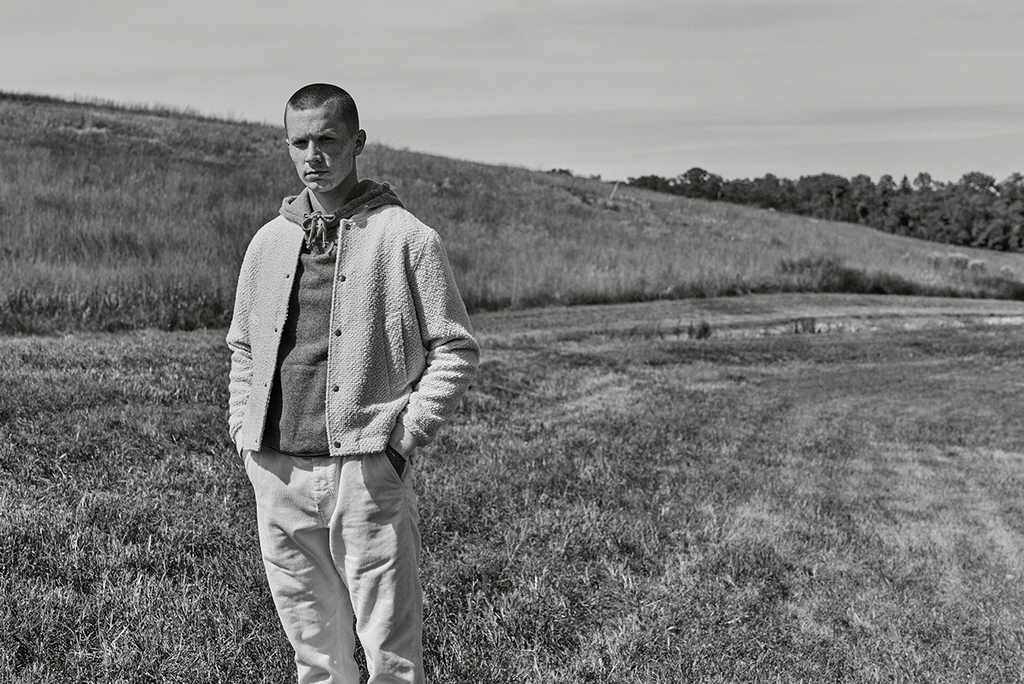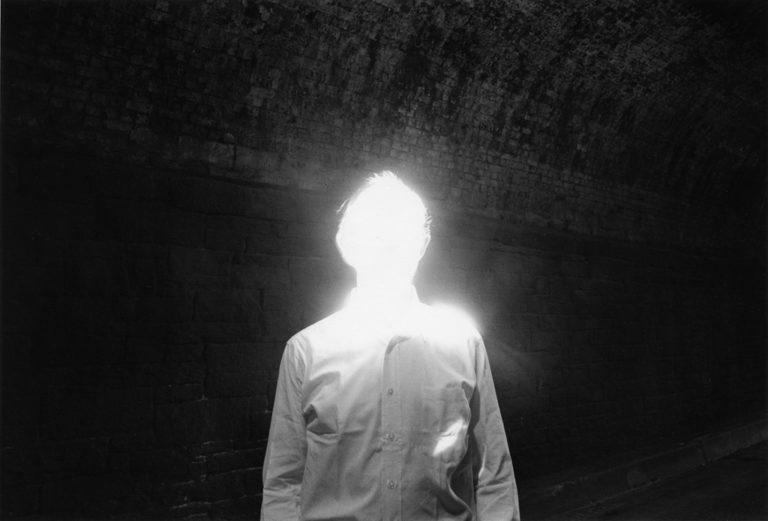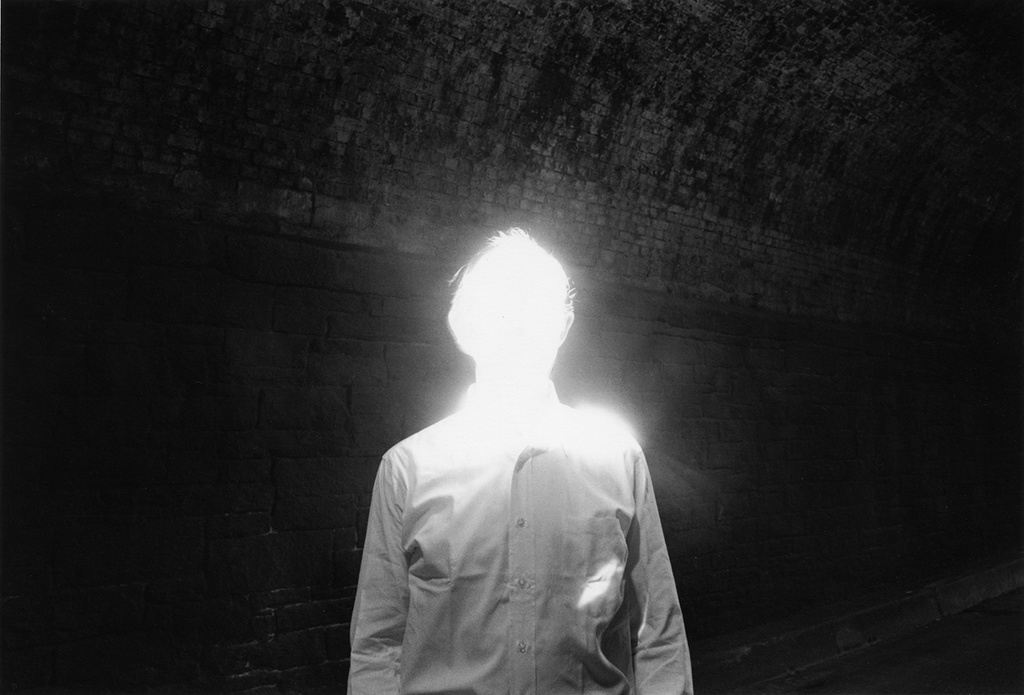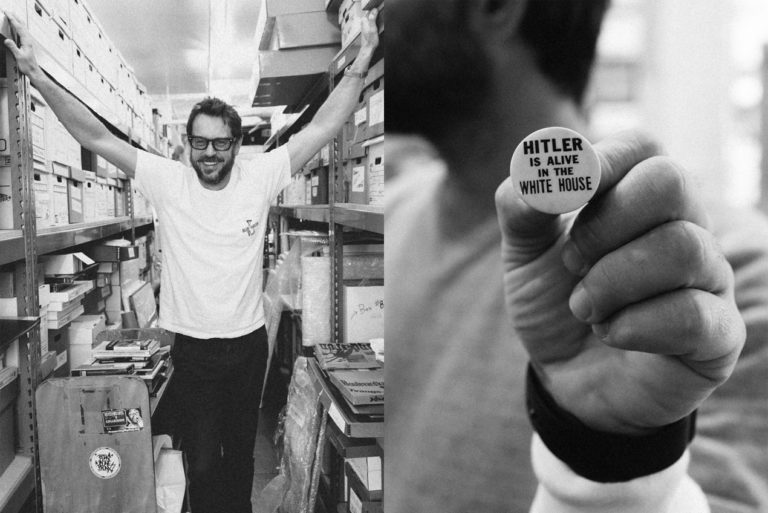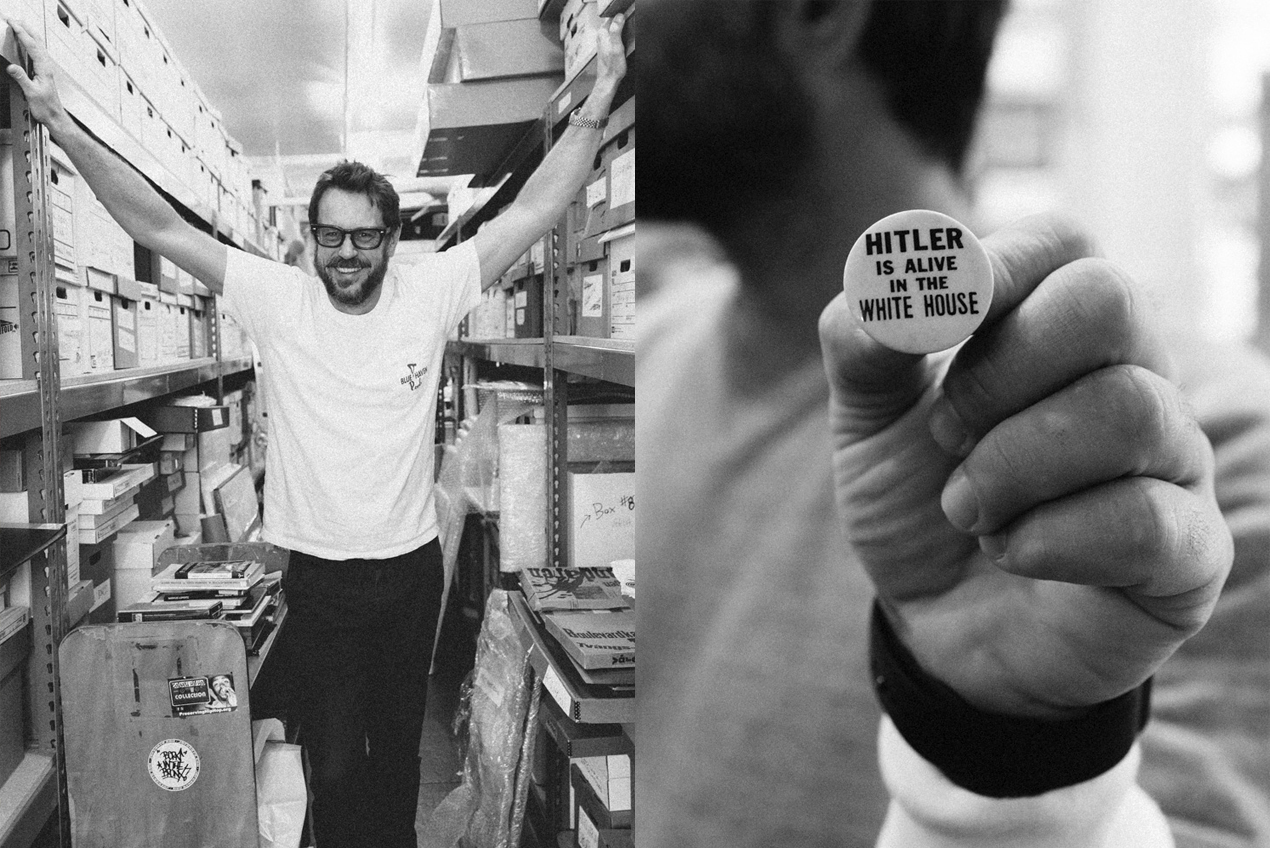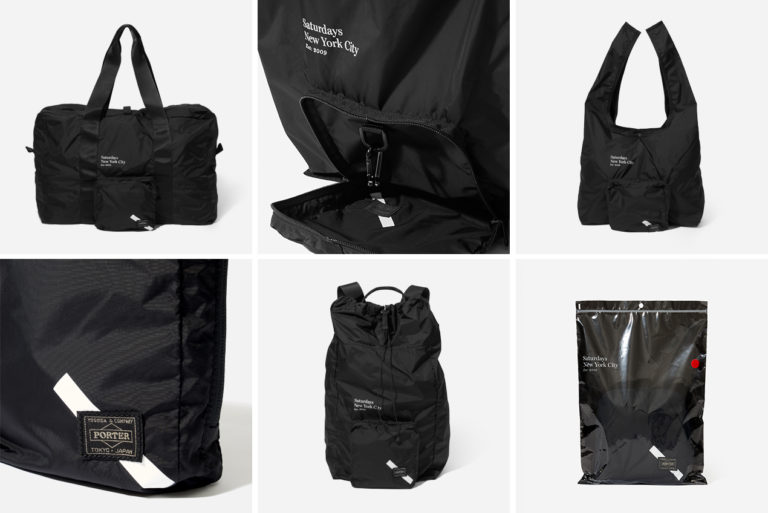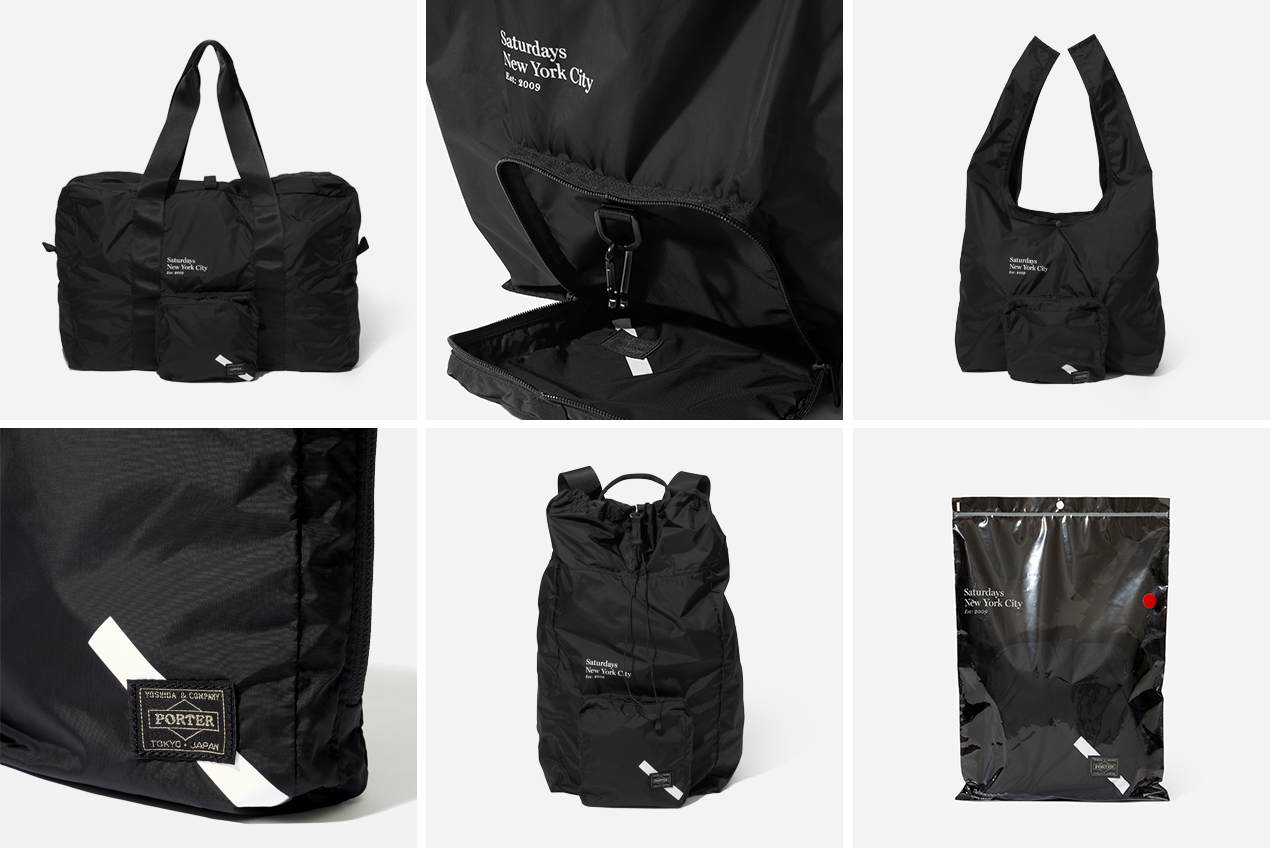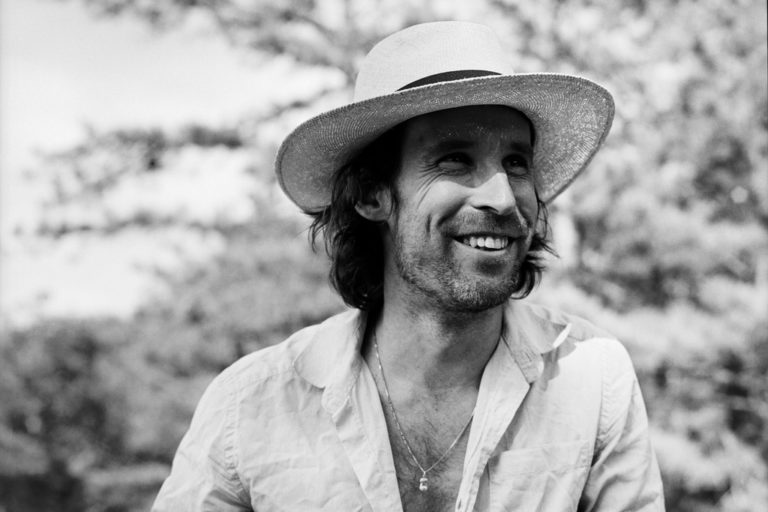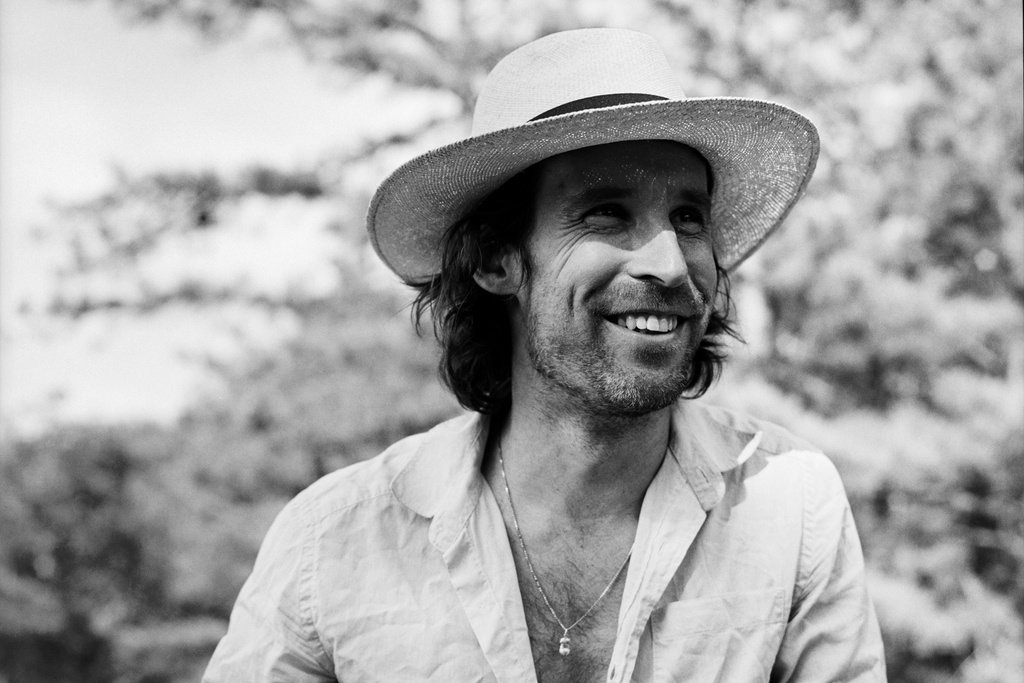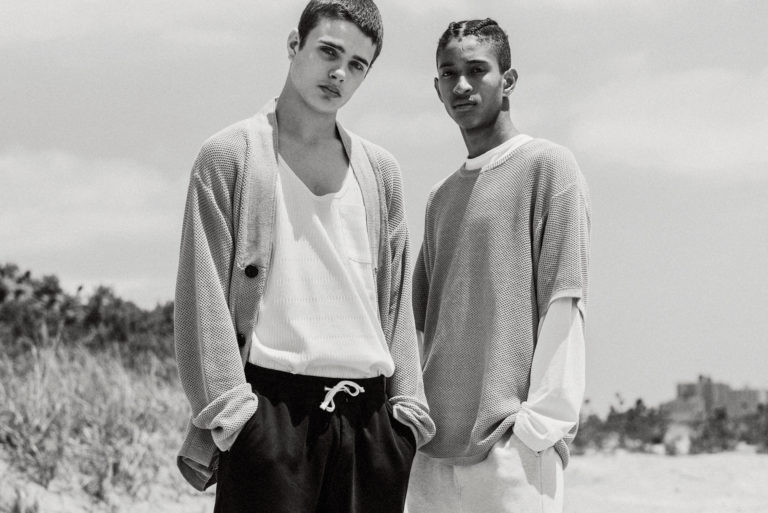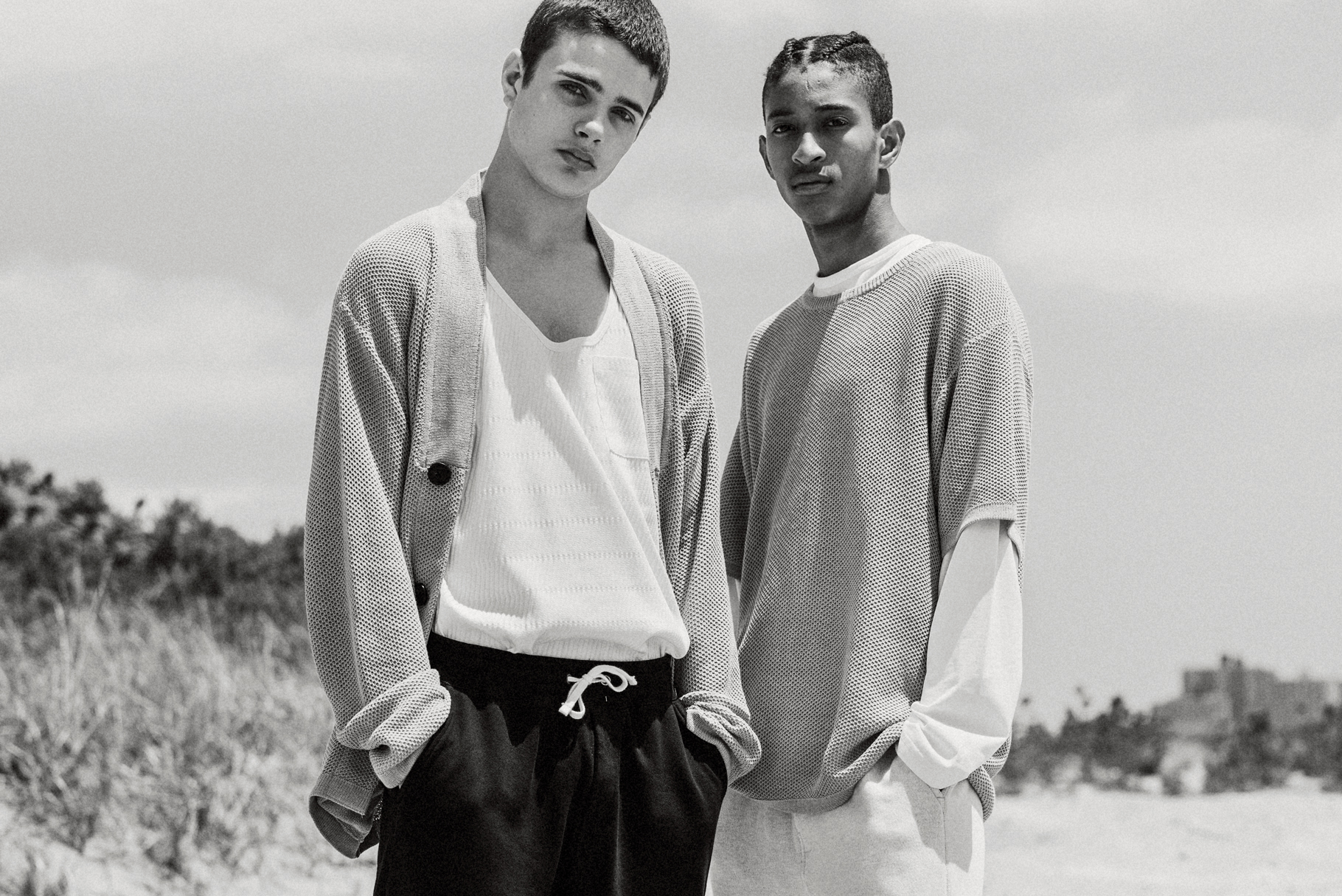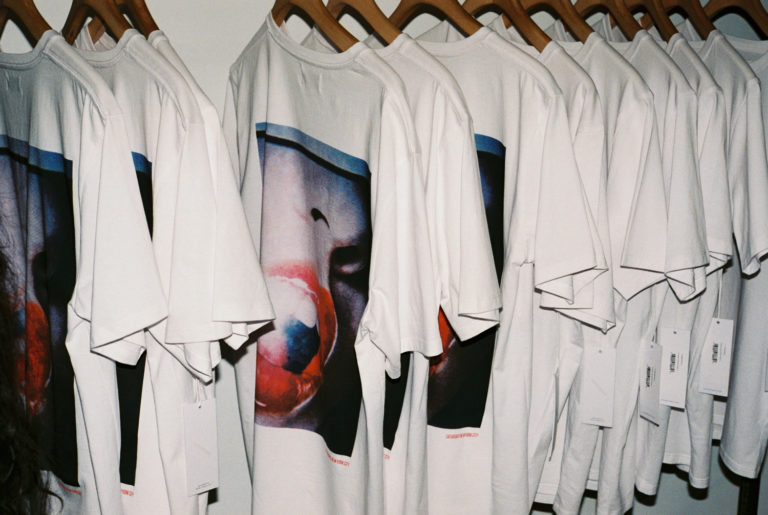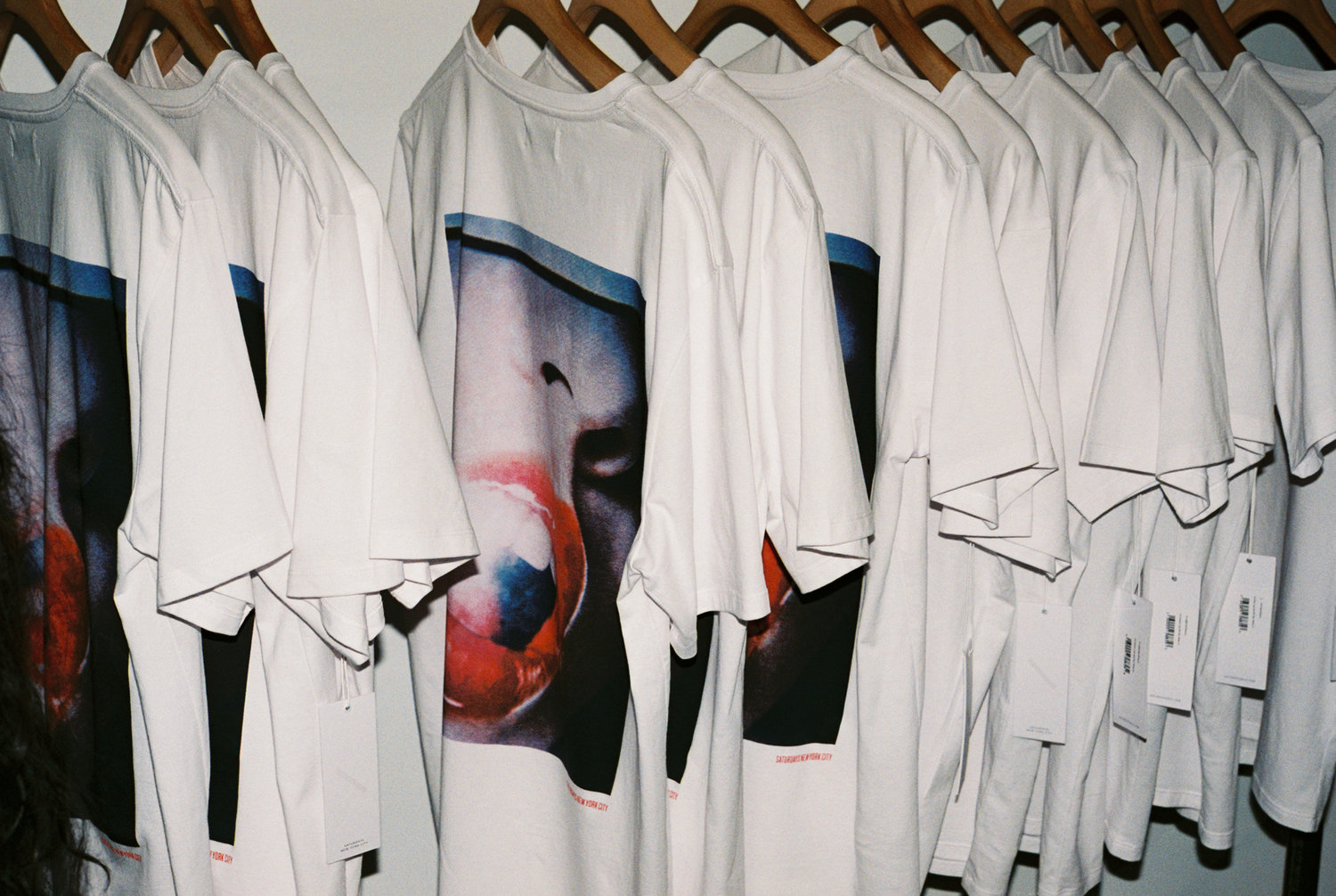javas lehn: What exactly is your profession?
rip zinger: I’m a professional hanger-outer. By hanging out I mean that I go here to meet this guy, and then go there to meet that one. My profession is to just move around and make sure the world is spinning in the right way. I’m patrolling. I love linking people up. I try to create strong content in my friends’ lives. That’s what I’m doing.
jl: And taking photographs.
rz: Photography just goes along with that. Before everything, though, it was skateboarding. Skateboarding involves very diverse people with different perspectives—people from all over the world. I love that culture gap. I also think my profession is to be a translator—but not just between English and Japanese. I’m translating hardcore and underground ideas as well. A translator needs to explain it all in general terms. Photography is only one way to describe a person’s life, if it’s a life that few people can relate to.
jl: It seems like you’re not only a connector, but you’re riding this wave between different people and cultures, whether it’s surf or skateboarding or travel or hosting people in Japan. How did you start out doing that?
rz: I’d say it started with photography, and of course skateboarding. I was fourteen and in Hawaii. It was 1989. That’s when I first met Eric Elms. We had no Internet in Hawaii, and it cost a ton to talk on the phone, so Eric starting sending me letters. They were the most practical way to keep in touch back then. That was the first time that I needed to open my dust-collecting dictionary. I needed to translate every letter to figure out what he was saying to me. I didn’t know English at all yet. There was so much information that I could get from that language that I couldn’t get from Japanese.
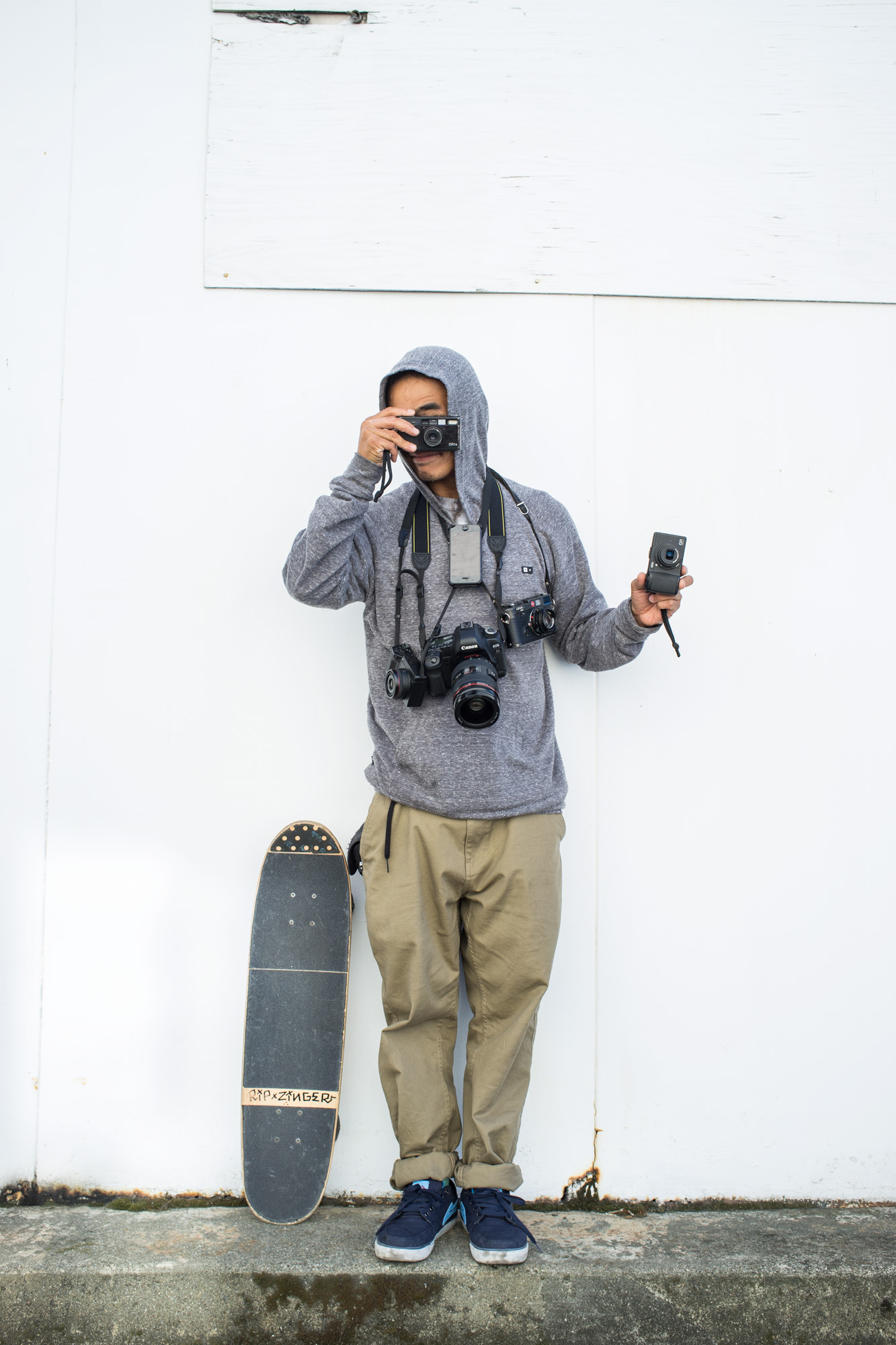
Photo: Ray Barbee
jl: Where in Japan are you from?
rz: I’m from Roppongi. There are more than fifty embassies in my neighborhood, with cosmopolitan and international people everywhere. When I would go to the park, there would be little kids trying to snatch my bicycle or skateboard saying something in English that I didn’t understand. I learned a little English dealing with them as well.
jl: How did you start photographing skateboarders?
rz: A Japanese distributor invited me to go on a tour. This distributer tried to plan everything and keep the guys on a schedule. Skaters are more spontaneous, though. They just do what they do. There’s a big difference between what the businessman wants and what the skater wants. That can cause a lot of misunderstanding. The distributors had a specific timeframe. They wanted them to be signing here and signing there, skating here and skating there.
jl: It’s the ongoing story of the suits versus the skaters.
rz: I understood both worlds. I became a bridge. I would speak with the Japanese businessmen in a mild way. I would translate what the skaters wanted in a way so that regular Japanese people could swallow it. I’d make them change the schedules.
jl: That must have opened up a lot of doors for you.
rz: Definitely. That first tour led to movie production, art installations, other skate and snowboarding tours and stuff like a big-budget shooting with Nike. My life is never planned. These things just happened.
jl: That’s probably a good thing.
rz: I was in Tokyo for a while, and now I’m traveling around off of my island. Traveling has always formed the concepts of my life. Moving around, meeting new people and seeing new places—that is my priority. Wherever I am and whomever I stay with, no matter what board they ride or if they’re a painter, they’re my subjects. I’m not aiming to shoot anyone in particular. There’s no specific direction.
My profession is to just move around and make sure the world is spinning in the right way.
jl: What makes you such a good traveler?
rz: You’ve got to have the mentality to always absorb more. There’s a big difference between me in the US and me in Japan. The biggest difference is that when I’m speaking to anyone in English, I’m putting 120 per cent into expressing what I’m thinking. I have to use that 120 per cent to focus on and understand what they’re talking about.
jl: And you connect to people completely differently in Tokyo?
rz: It’s totally different. When I’m in Japan, I’m like a nail sticking out. A nail sticking out gets hammered down. If I go back home with this 120 per cent attitude, I’ll attract too much attention. I’ll be too loud, too shiny. People will trip up. I have to save my words and swallow them twice. I have to watch myself. I feel like I’m in jail there.
jl: So, the road is your home. Not Japan.
rz: I feel like my mother and my family are in Japan, but the home of my heart is all over the world. There’s a tour called Super Champion Funzone, that’s put on by Fourstar in Tokyo with Mark Gonzales, Eric Koston, Mike Carroll, and others. When they first came, it was a big mind shift for me. I was into snowboarding and traveling in the surf world in places like Madagascar and Senegal. Once you experience third-world countries like that, the existence of America seems questionable with the war and Bush and those things. But as soon as I saw those skaters, I thought, “America is the best!” It just changed my mind.
jl: Where did the name Rip Zinger come from?
rz: My friend from Deluxe gave me the name. I was driving with this band on tour, and people were always asking me to grab something out of the van. I’d rummage around, get the shit and go back to the spot, over and over. I started to love the Zip Zinger cruiser board that I was riding back and forth. I had my birthday then, and Dave gave me the board. He signed it, “To Rip Zinger,” when he gave it to me. That board is my life. “Rip Zinging” is actually the verb. All I want to do is just be Rip Zinging all over the world, you know? I was more of a hard wheel, trick-skateboarder guy originally. After that, I focused more on snowboarding and traveling. Then this Zip Zinger came and I started to cruise around. It gave me a reason to get back on the skateboard again. I’m always rolling around with my camera.
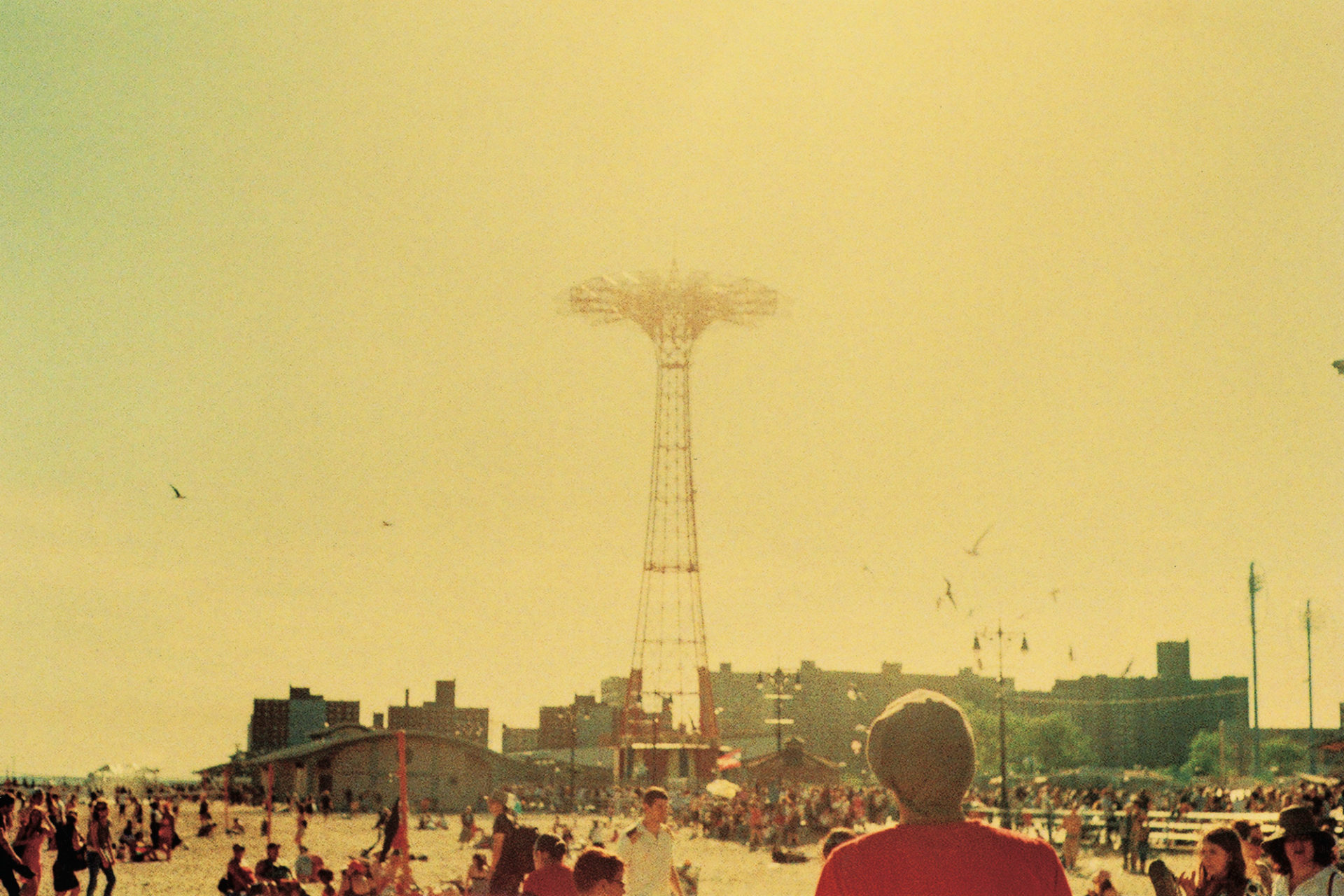
Hot, hot summer, Coney Island.
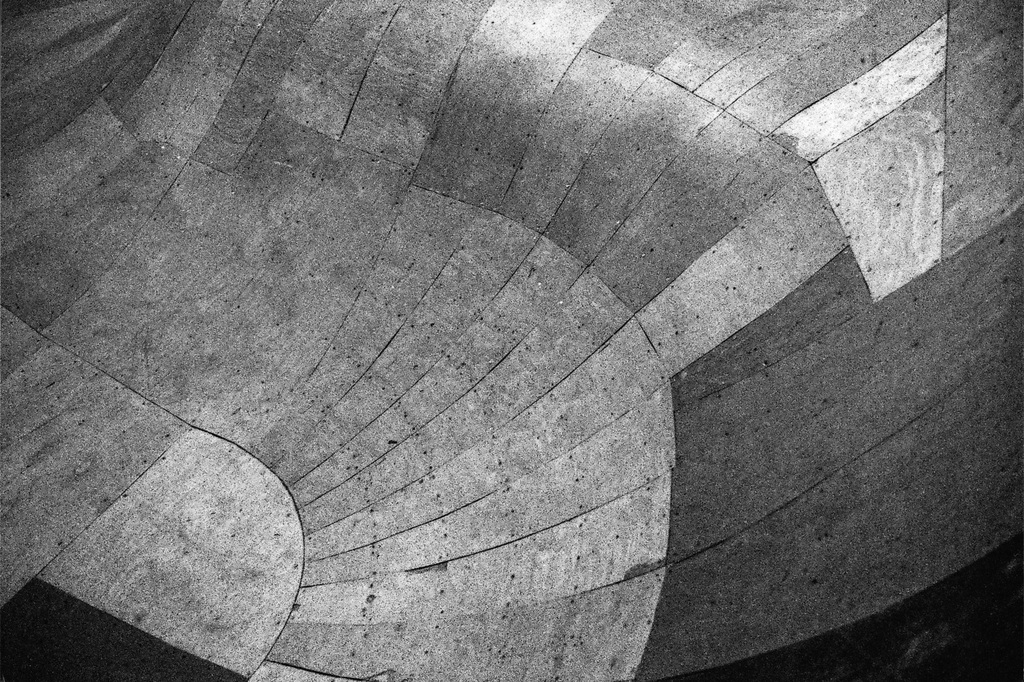
Autumn bowl, Brooklyn.
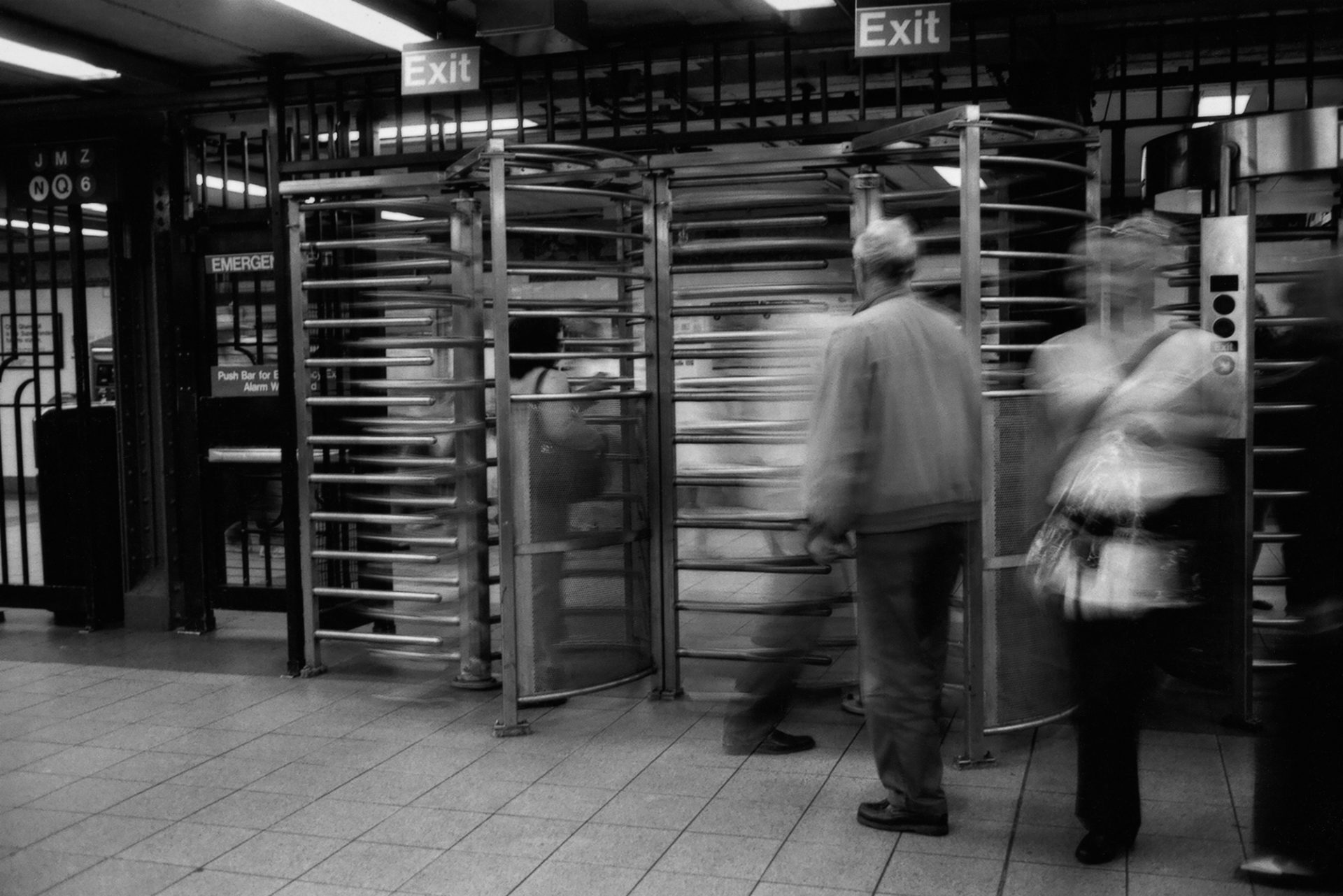
Subway entrance, NYC.
jl: Amazing.
rz: I have a different perspective every time I go to a new city or a new country. If I don’t feel comfortable, I just jump on the Zip Zinger and roll around. Then I’m home. I love that concept. I just start to get it going, you know? Ty Evans, who’s the most amazing skate videographer—he told me about couch surfing. It sounded awesome. It’s not like I’d have to be a bum. I wouldn’t be homeless. One week after hearing about couch surfing, I got a ticket to travael for three months. The book, Ripzinger West Americanized Tour, started there. That was June, 2005. Eventually, I took the pictures I’d taken and made a mock-up book. The taste, color, feeling and information were all laid out just as I wanted them.
jl: So you designed the book as well?
rz: Yeah, I made it and I was trying to look for a publisher. I wanted them to be from the country where the photos were shot so all these people who helped me to take the photos could have access to the book. If it were published in Japan, nobody would touch it. Stussy was looking for a book at that time because they wanted to develop a publishing house. My book matched what they were looking for, so they gave me the chance to publish it.
jl: You put out another book too, right?
rz: Yes. The second book was based in New York. I wanted to do more of a street photography thing. When I arrived, I bought a Leica M6. It was the most precious thing in my life. The eventual book, Rip Zinger New York City, was published by Bueno Books.
jl: You were telling me about going to Joshua Tree, recently?
rz: Yes. We went to Joshua Tree and Palm Springs. Then we jumped on a 1952 school bus that we took to Santa Barbara, San Francisco, Big Sur and finally to New York. I took photos everywhere.
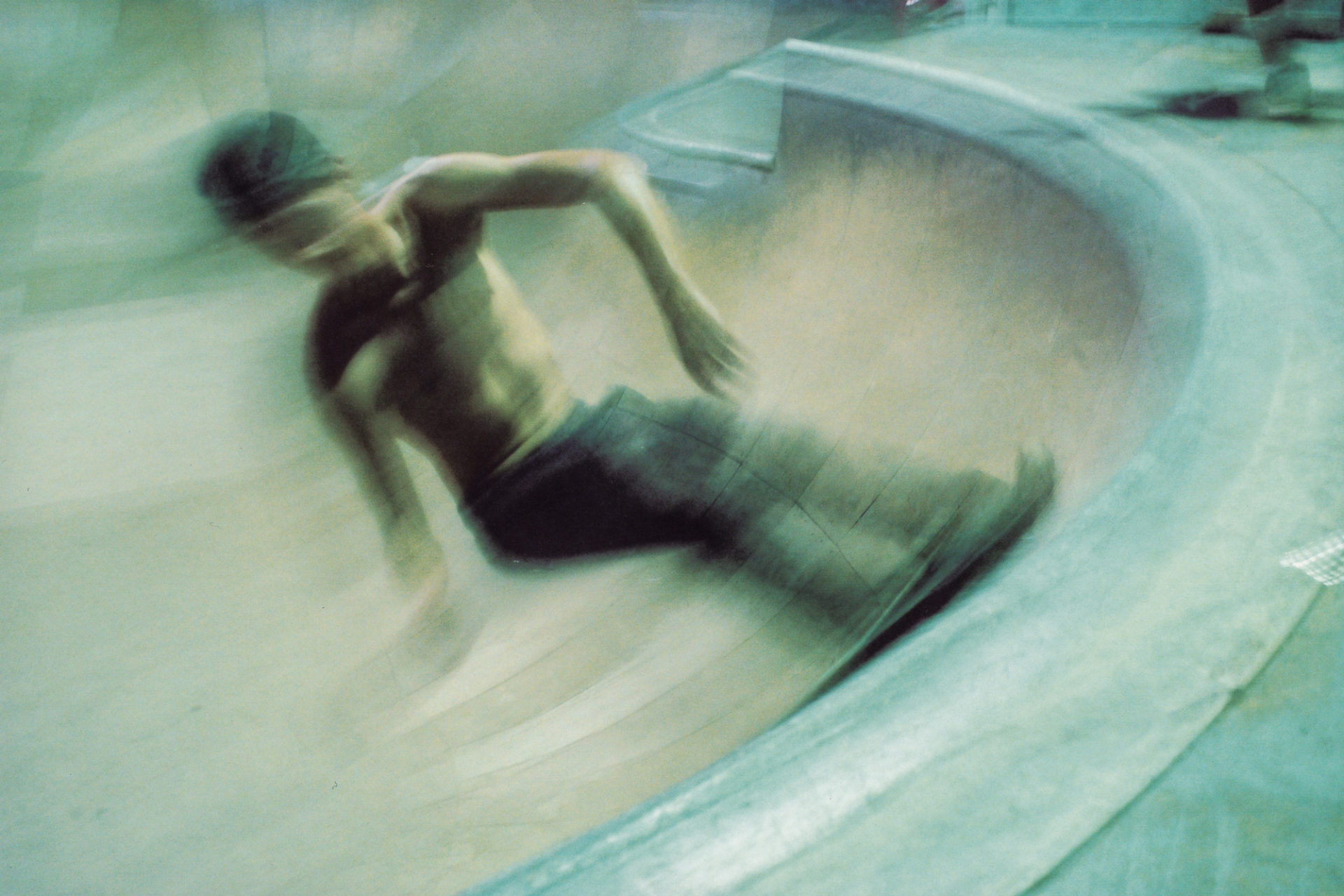
Seth Rosko, Autumn bowl, Brooklyn.
jl: You see a large divide?
rz: As soon as I go back to Japan, who the fuck can I relate to? I’m staying at Tony Hawk’s house right now. He believes what I believe.
jl: I heard you had an interesting story about how you learned to surf.
rz: I was dreaming of learning to surf for a long time. The first person that put me on a wave was Thomas Campbell. He tried to open the door to my other side. That was in 2005. He introduced me to surfer people in Japan and took me to the beach. I had had a lifetime desire to learn how. It looked really hard to learn, but the injuries aren’t as bad as with snowboarding and skating. We went to the beach and he introduced me to Alex Knost and a Japanese crew. They do shit that looks super easy. They made me feel really relaxed about it. I just kept hanging on. Thomas had a wedding to go to in Mexico. That was the first time that I started to check out waves before I brushed my teeth. Every single day it was just wake up and surf. Wake up and surf. Surfing has opened up a lot of doors. Still, I’m just riding foam, the white water. I just go straight—I never turn. And I never feel comfortable when I’m in the water.
jl: Why?
rz: We were chilling at the pool one day in Palm Springs. The pool is half shallow, half deep. I was chilling in the shallow area. Noot Seear, the actress, was in the deeper part, and she told me to come closer to her. I told her, “No. My side is over here. I cannot swim.” She couldn’t believe it. She started to teach me to how to paddle.
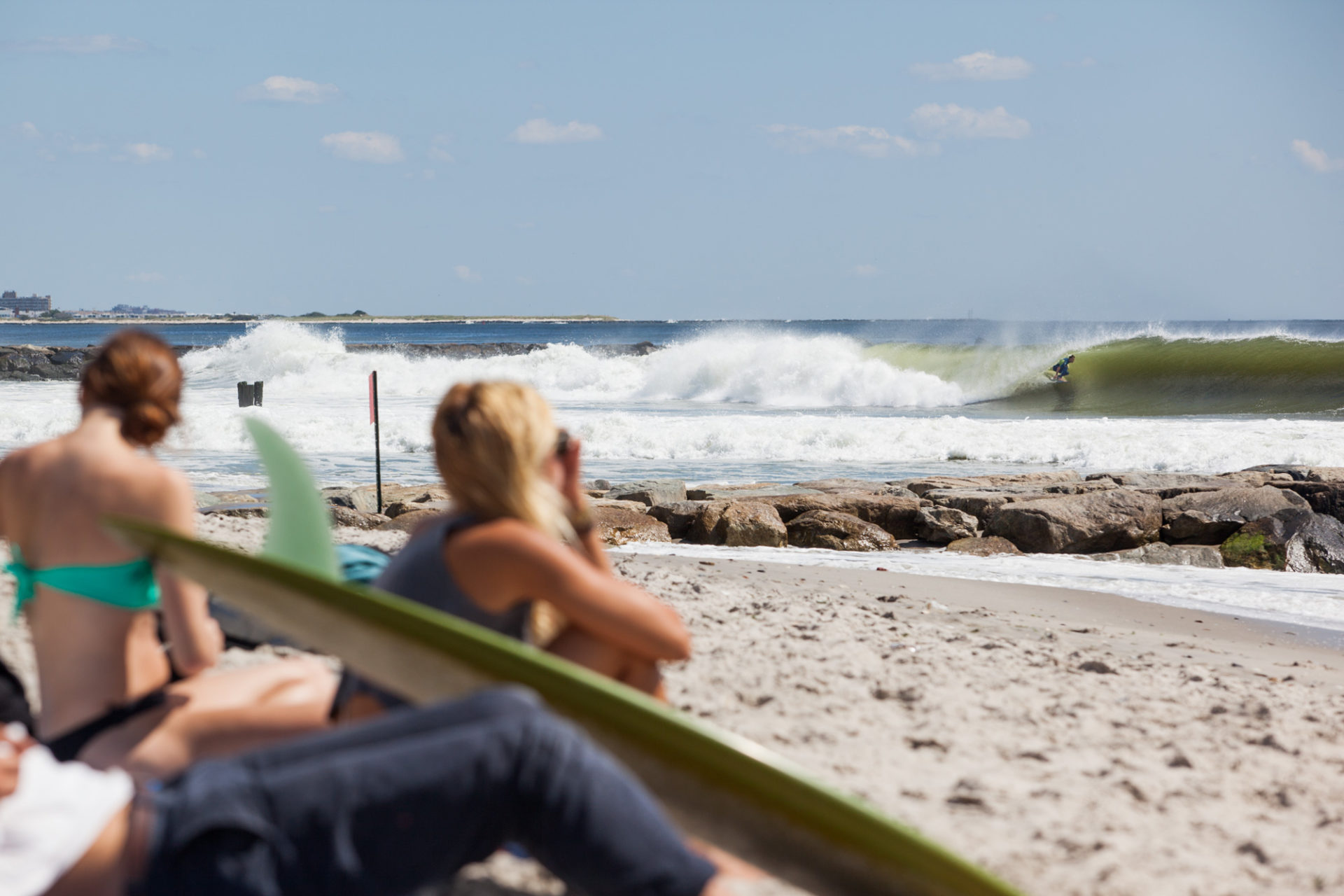
Balaram Stack, The Rockaways, 2012.
jl: In the photos, it’s really clear that you connected with all these different people who are passionate about what they do.
rz: I think there’s an economic effect to that. No matter what era you’re talking about—’80s, ’90s or ’20s—America has always been on some kind of economic wave. When the economy goes down, there are two choices that America has. They can go to war, or start an alternative trend. You always use more or use less. The Vietnam War, the flower children and all of these ’70s psychedelic movements are all based on the greater economic system.
jl: So in one form or another, a person chooses to be against it or with it?
rz: When the government fucks up, you get more confidence to do what the fuck you want to do. Kassia and all those girls went through the maximum point of the industry. I think that was not what they wanted.
jl: They chose not to go on tour but to be free of the usual constraints of normal society.
rz: They wanted to live with total freedom and do what they loved. This current generation of people in their thirties, they mostly went through their twenties in a good way.
jl: Yeah, for sure. You’re free to do what you want to do and follow your passions.
rz: For me, the Japanese government is at the top of the list of structures that you cannot believe in. But Japanese society doesn’t do anything about it. They cannot secure us anymore, partially because the nuclear power is unreliable. It was just obvious during these past couple of years. Eventually, I think that the Japanese people are realizing that nothing is gonna secure them. Nothing’s gonna guide them to their dream life. So some of them end up saying: “Fuck. We’re going to do what we love.” People are choosing to use the whole world as a vehicle to direct them towards what they believe in. You step away from the world like this. You create your own zone. You just fly out of this earth and then fly around in another space. That’s how they describe this moment. People from the real world don’t have the language to relate to what these folks are talking about, you know? They kind of have to separate themselves from that mainstream. I feel the same way when I go back to my country.
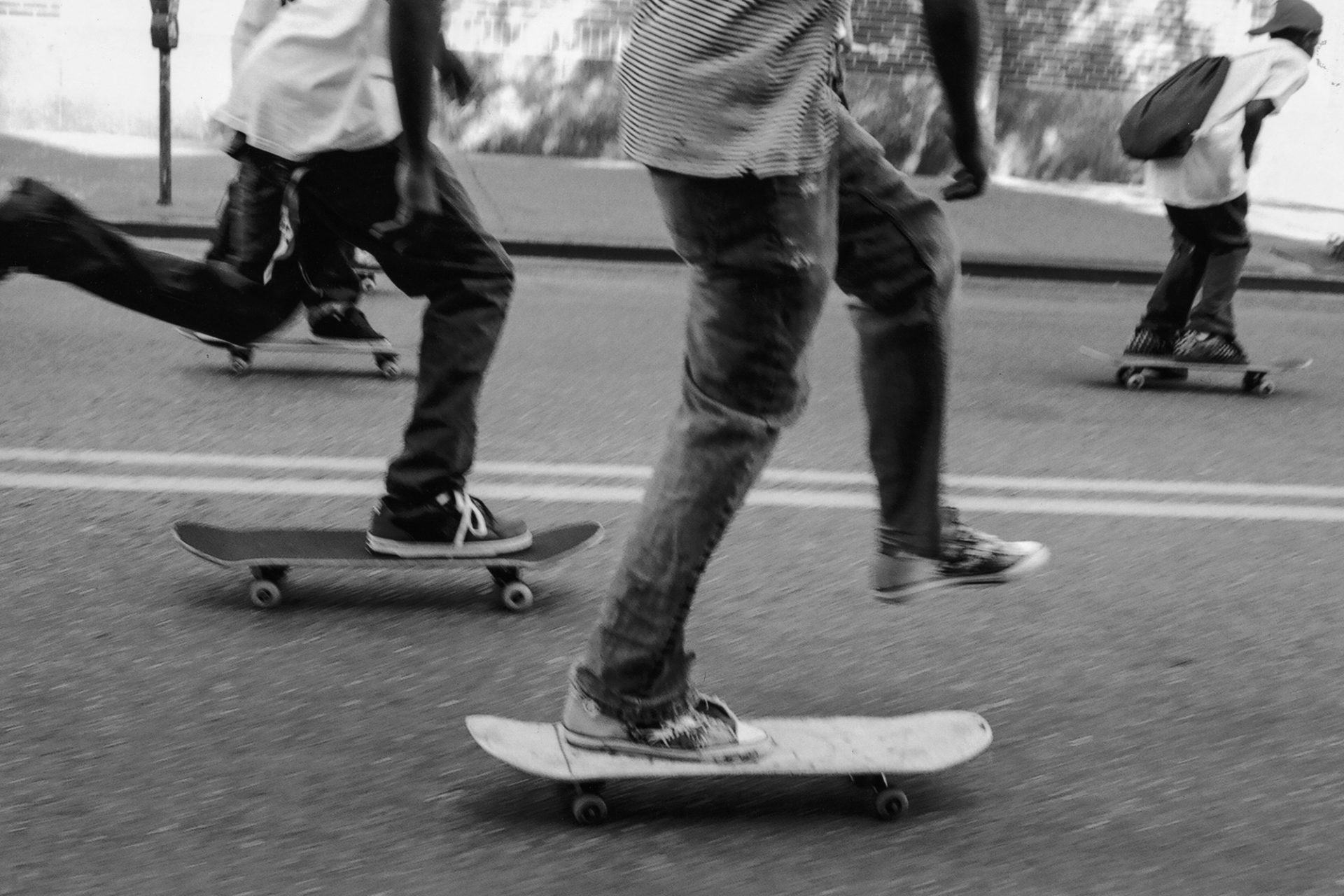
Skateboarding day, NYC.
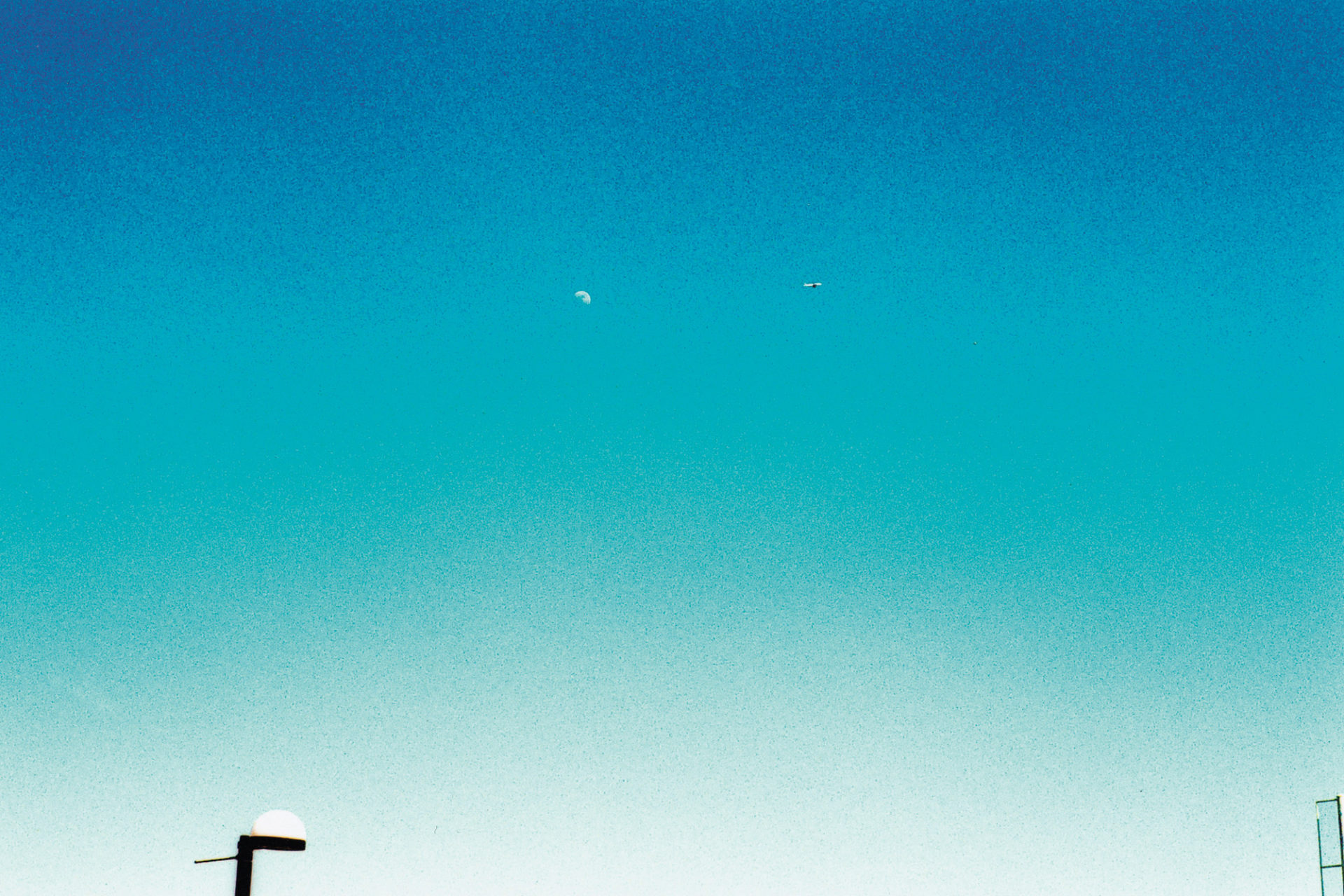
Moon, plane, balloon, Coney Island.
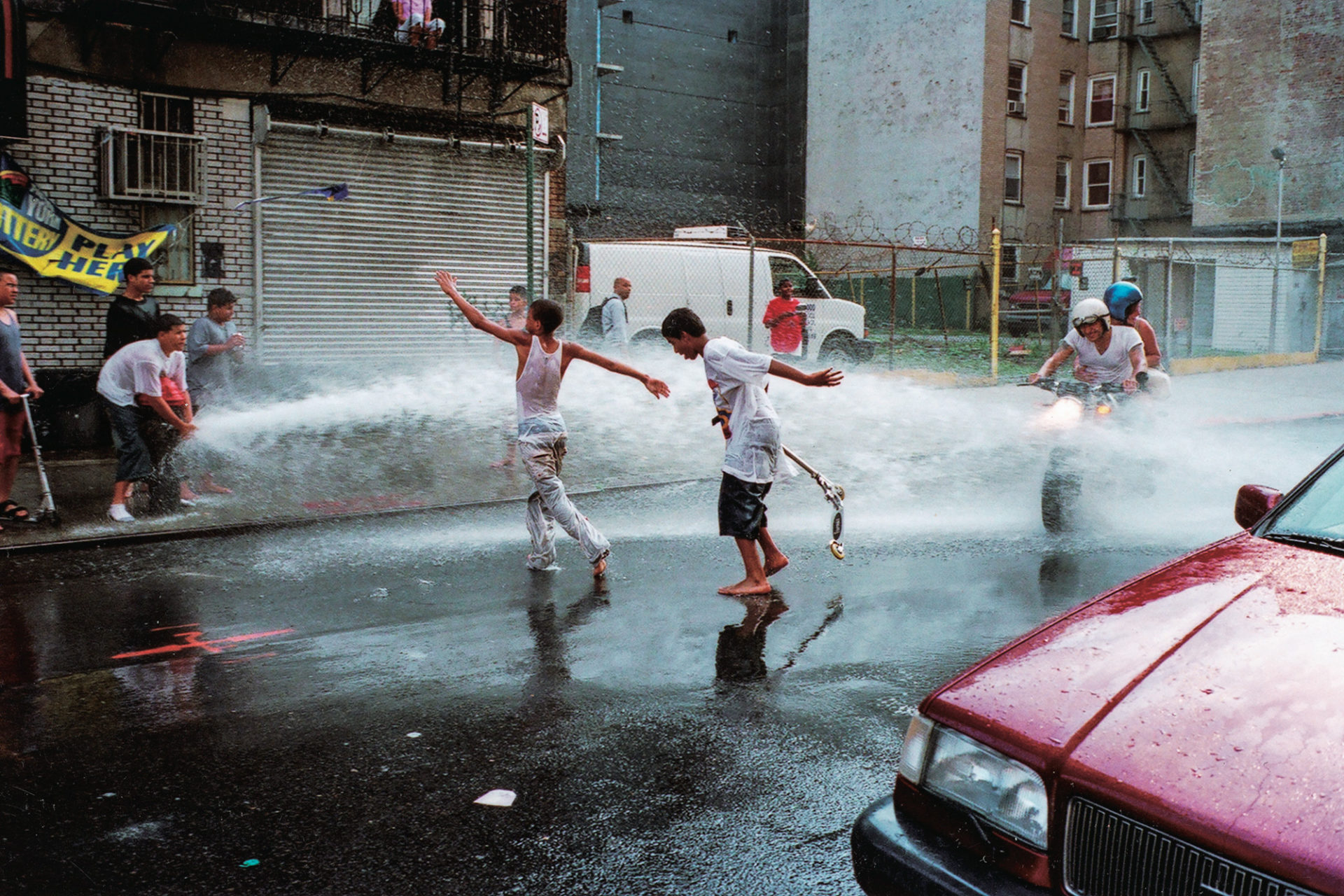
Hydrant play, Brooklyn.
jl: So you were surfing before you could even swim? That’s crazy.
rz: She told me to make a shovel with my hand. That’s helped me a lot. She taught me to do a duck paddle and the breaststroke. I realized that my hip muscle is too stiff to open the leg the right way, so she showed me the crawl paddle. She showed me how to lift my elbow and shove my hand into the front part. When she lifted her elbow up to demonstrate, I saw her tits popping out of the water. I didn’t know she was topless while teaching me to swim! She went to the corner of the deepest part and I tried to use all of my muscle and energy because I was so stoked to paddle towards her!
jl: So, she taught you to swim?
rz: Yea. The next week, a friend took me to Catalina Island. I jumped off one of his boards into the ocean and swam back to the tail of the board. We were in that place where you never can reach the bottom. That was the longest distance I had swam without touching the ground. I opened my eyes in the water for the first time as well. It was game-changing.
jl: That’s amazing.
rz: After surfing so much, though, I’ve had issues with my shoulders. I was using all of my energy to paddle. I started stretching out my shoulder and hipbones, and just staying healthy. It’s been huge. It’s been like learning a new language, or to play a new instrument.
jl: I’m taking French right now, and I feel like I’m a child again. Just the way my brain operates and learns. Being thirty years old and trying to learn something new like this, it taps into that curious nature in your mind.
rz: Traveling around, I’m taking whatever kind of photos are available. There’s no set subject that I’m focusing on. One of the most important things is that I have the chance to see everything. I want access to everything. I try to get excited about every element in my life. If you try to structure yourself, you will get a square head.
My life is an advanced version of a hippie’s. I’m an uprooted person who just travels.
jl: If more people had that mentality, maybe we wouldn’t live in such a limiting society.
rz: My life is an advanced version of a hippie’s. I’m an uprooted person who just travels. People back in the ’60s started from Thailand and ended up in India and Europe. They got their pass to get into trouble. My path is similar, but it is through skateboarding, snowboarding, art and creative things.
jl: What’s next for Rip?
rz: In the past three months, I’d had the desire to stop traveling and try to stay in one place. I wanted to dig down in education and build up the business. Pay the rent. I went to Hermosa Beach to start this new chapter. Now, look at me. One week later, I was flying to Portland with Danny Kass and going to Encinitas to skate with Tony Hawk. Nothing happened as I expected. It was the wrong idea to try to control things. I had to just take things as they happened.
jl: You’re almost making yourself up as you go along.
rz: Now I have it figured out. Now I know where to go. I was confused for the past three or four months. Now, everything is clear and I’m here. I know what my output should be.
jl: What kind of output is that?
rz: Personal output. I want to keep making books and telling the stories of my friends. I need to organize what I’ve got in my life so far, and try to deliver it in the right way.
jl: You’re just trying to share that creative spirit with people.
rz: And the perspective, too. Once you free your mind, you’re free. That’s my message. Everything is in your head. Nothing and no one is going to secure you.
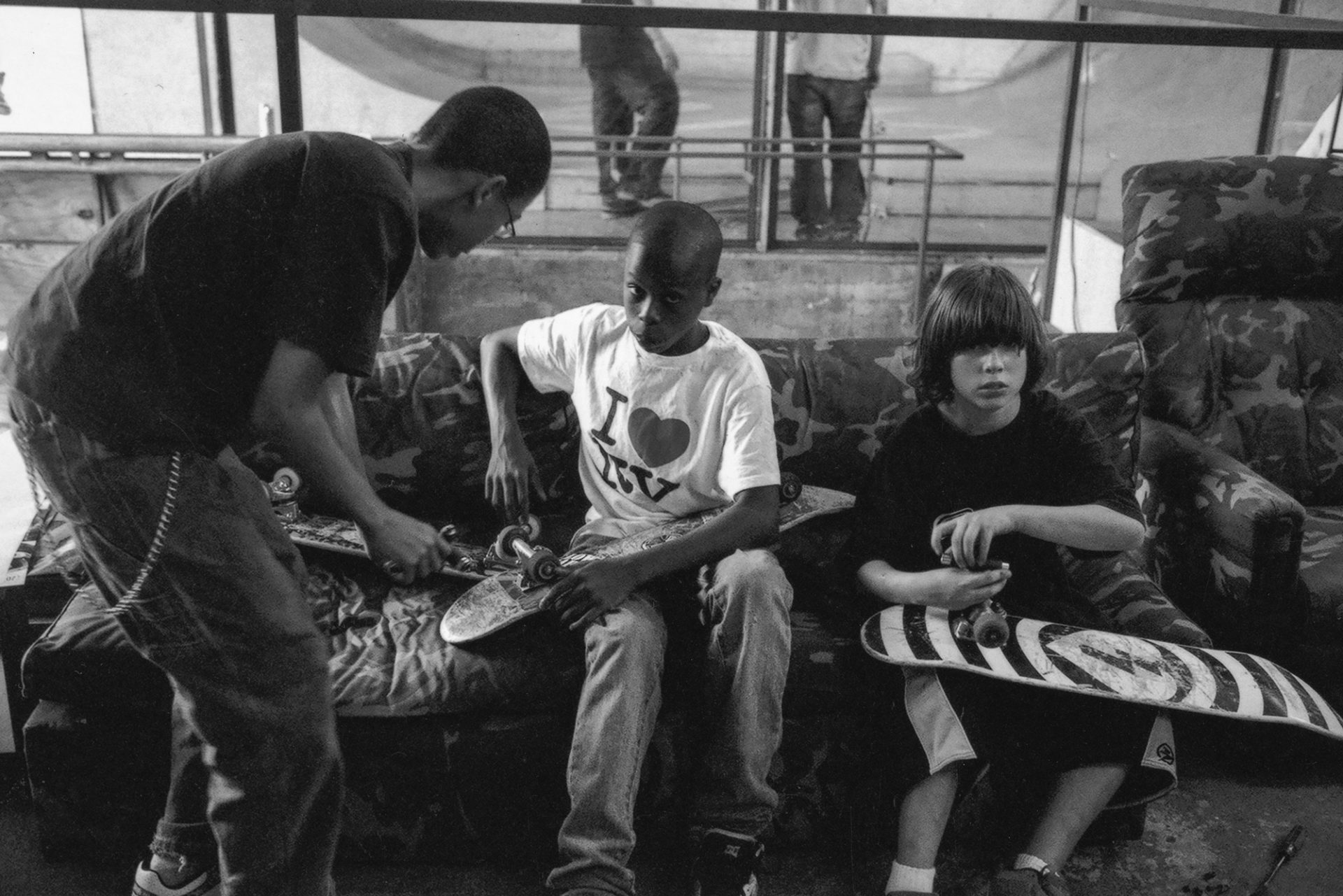
I Heart NY, KCDC, NYC.
jl: It’s a constant battle.
rz: I’m staying at Tony Hawk’s house now and I was surfing in Hawaii two days ago. My life is going better than my dreams! When I talk about my dreams it’s like I’m downgrading!
jl: I love that! When I met you in New York, I could feel that energy. When you articulate your outlook on things, it’s inspiring.
rz: What I’m saying is that it’s not all about being a big photographer, doing work with Nike and making a career for myself. It’s all about what kind of story you want your life to be. I think competitiveness is finished. The war is over. It’s time to be original, and face one’s time. What’s my story? The story’s not just showing the celebrities and the elements of the highlights of my life. Oh, I knew this guy. I shot that guy. It’s all about how my camera interacts with them. I don’t want my work to be about those flashy highlights of skate culture. It’s more about what I relate to. People always show the picture that’s more about the legend or some story. I just wanna expose the one man with a dream and a camera on a skateboard.
jl: Anything else you want to add?
rz: Just that it’s time to open your heart and absorb. Try not to be negative. Just do your thing. Also, thank you to everyone who let me stay on their couch!■
